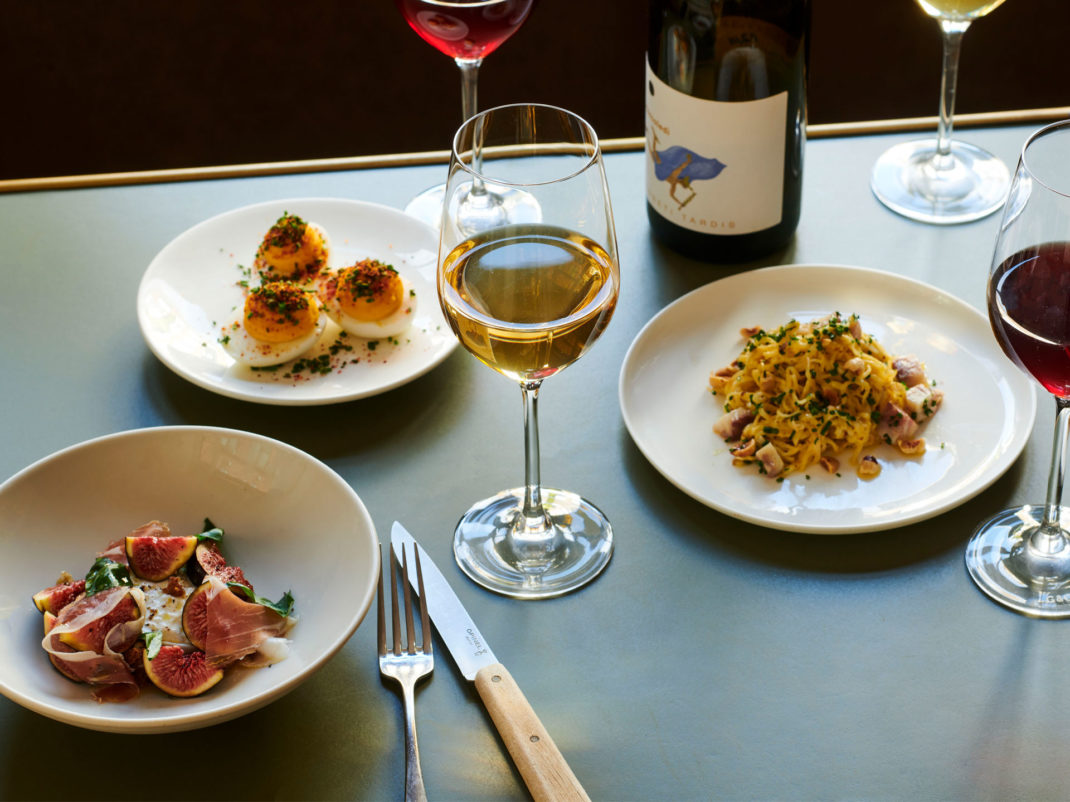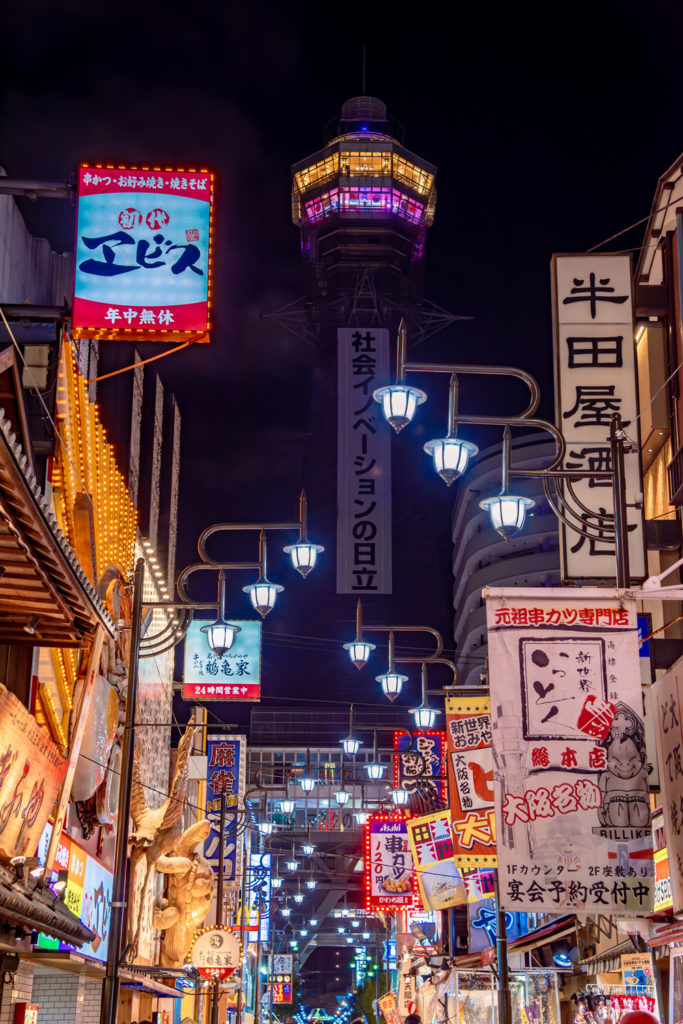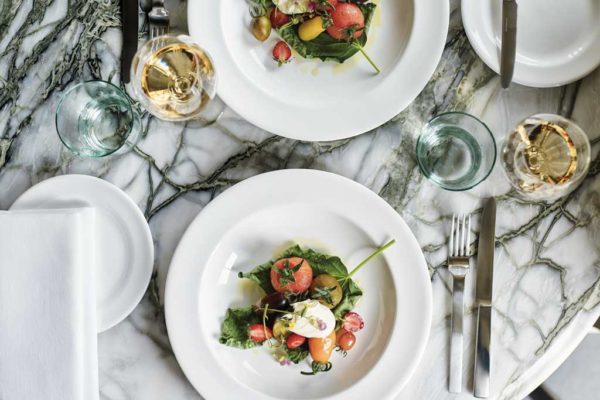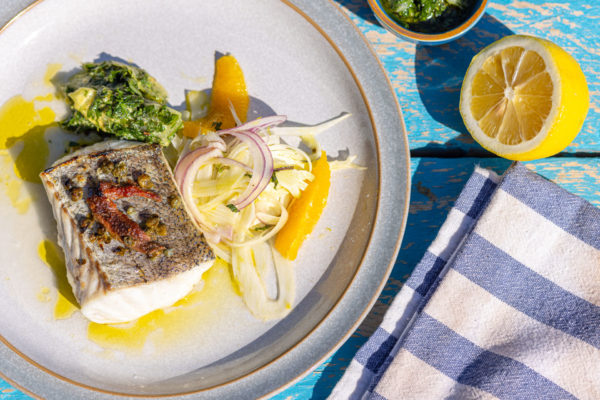Zero Waste, Amazing Taste: Silo London – Review
By
1 year ago
A truly unique flavour experience
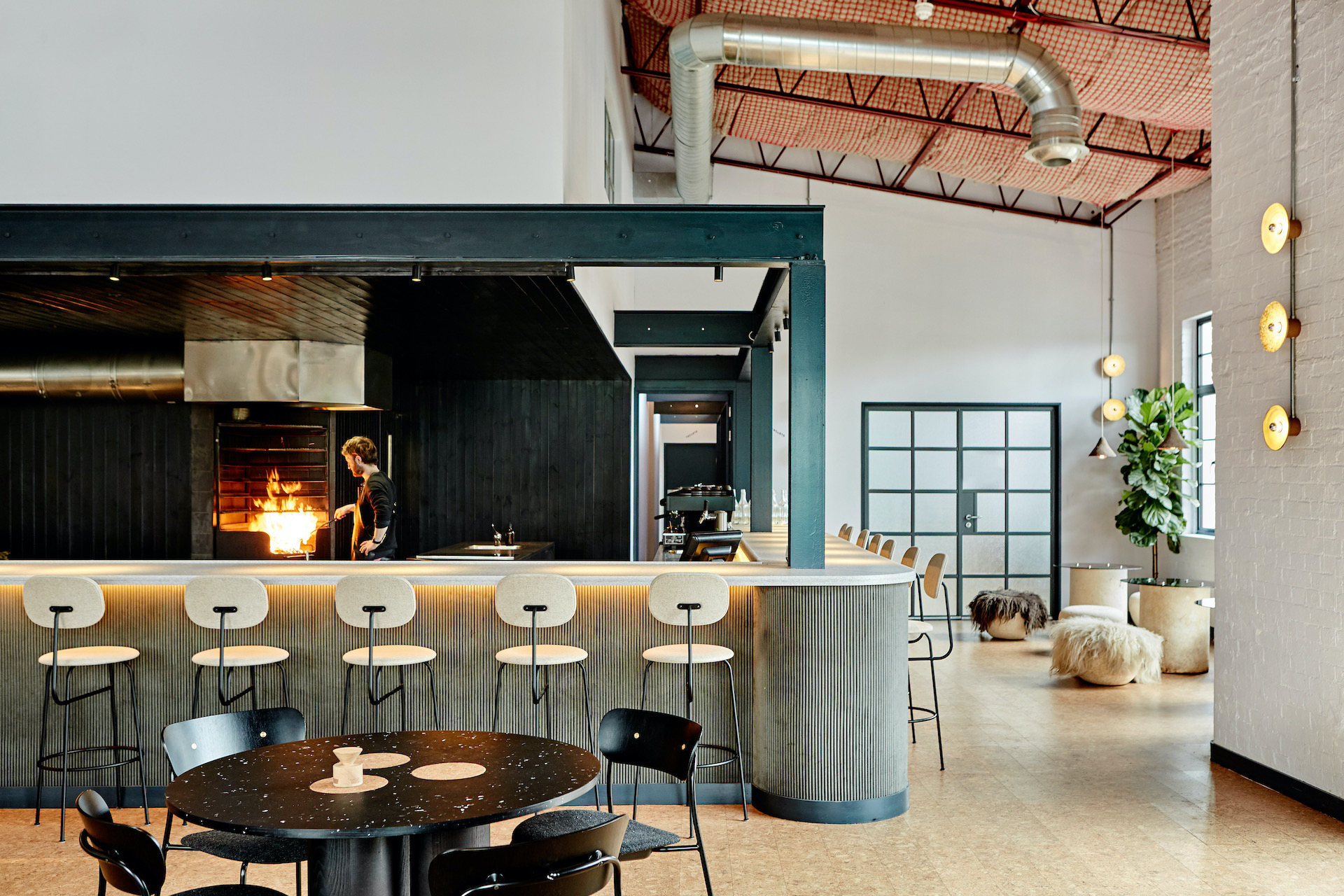
Digging into sustainable dining at Hackney Wick zero waste restaurant, Silo London.
Silo London Restaurant Review
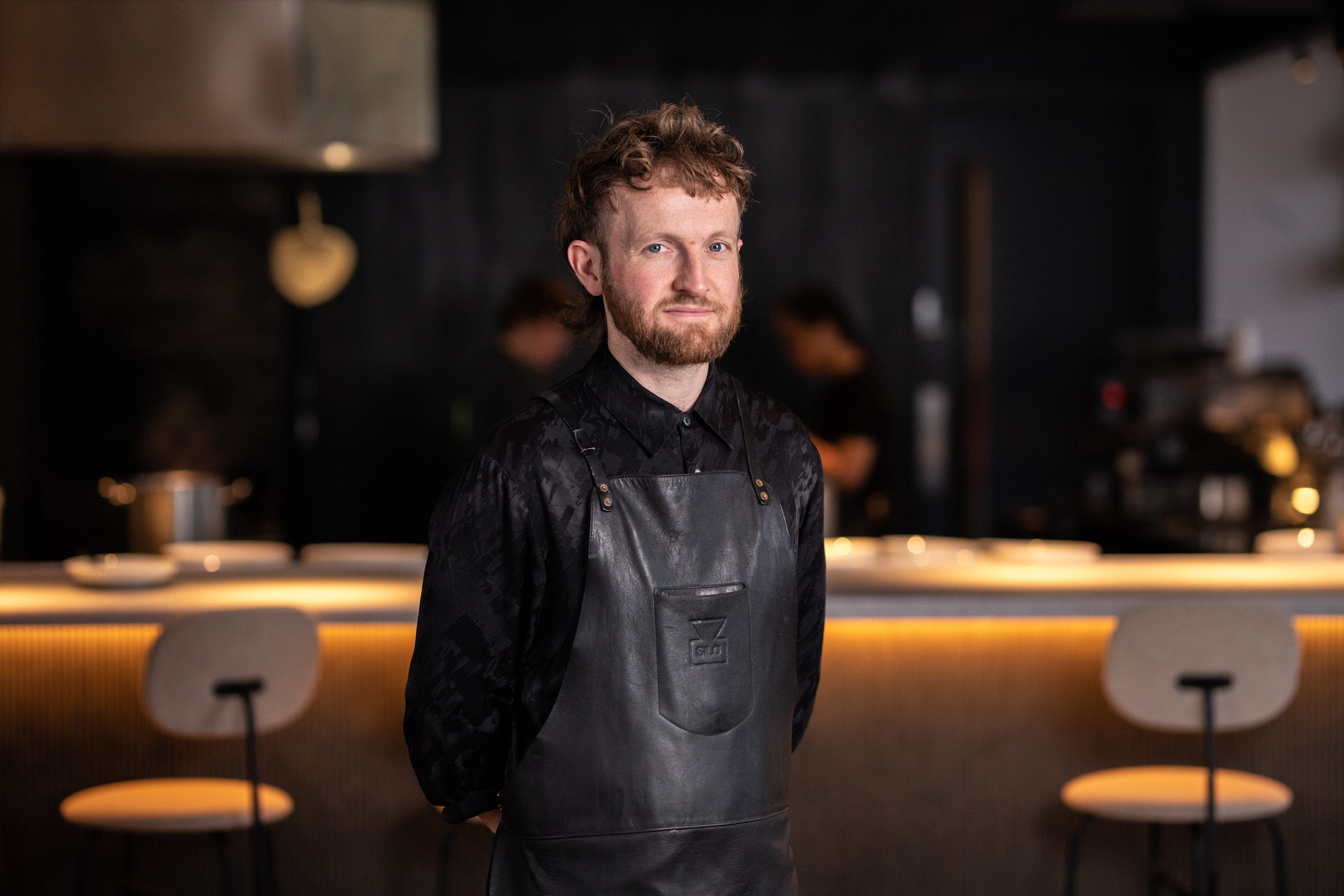
Douglas McMaster, chef and founder of Silo London
Now in its eighth year, Silo London is still breaking ground every day with its innovative zero waste ethos. Its founder and head chef, Douglas McMaster, started this journey when he was challenged by sustainable artist Joost Bakker to create a restaurant without a bin. He began with a zero-waste pop-up cafe in Sydney, Australia, in 2011, and then, in 2014, he returned to the UK and set up Silo in Brighton, relocating it in 2016 to London’s Hackney Wick.
Douglas’s revolutionary approach to repurposing and reimagining food waste is still unique in the UK food scene. The Silo way is to use absolutely every gram of each ingredient that enters its kitchen, using processes such as fermentation, pickling and preserving to ensure nothing is thrown away. Anything that can’t be reused is composted.
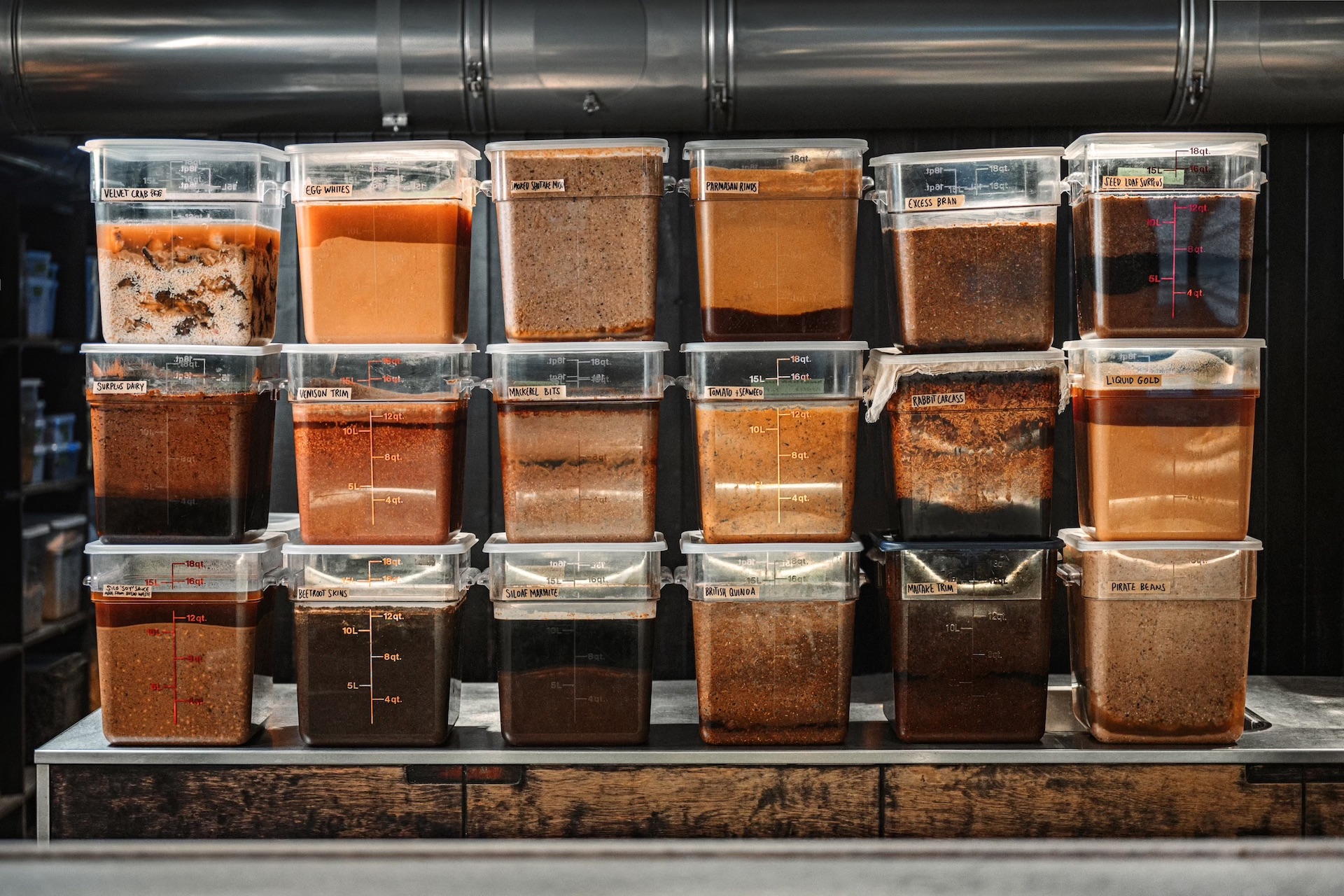
The menu changes weekly, based on seasonality, and is designed with consideration of the full lifespan of every ingredient in mind. It’s nose-to-tail eating – but applied to everything from kalettes to cull yaw mutton.
Overlooking the canal in Hackney Wick, and situated in a former factory building, Silo London is all high ceilings, white-washed walls, and pared-back furniture. Everything you see is created primarily from sustainable, natural materials and items that would be otherwise wasted: wall lights from crushed wine bottles, plates from plastic bags, tables from reconstituted food packaging, light shades from mycelium and seaweed, and flooring from cork.
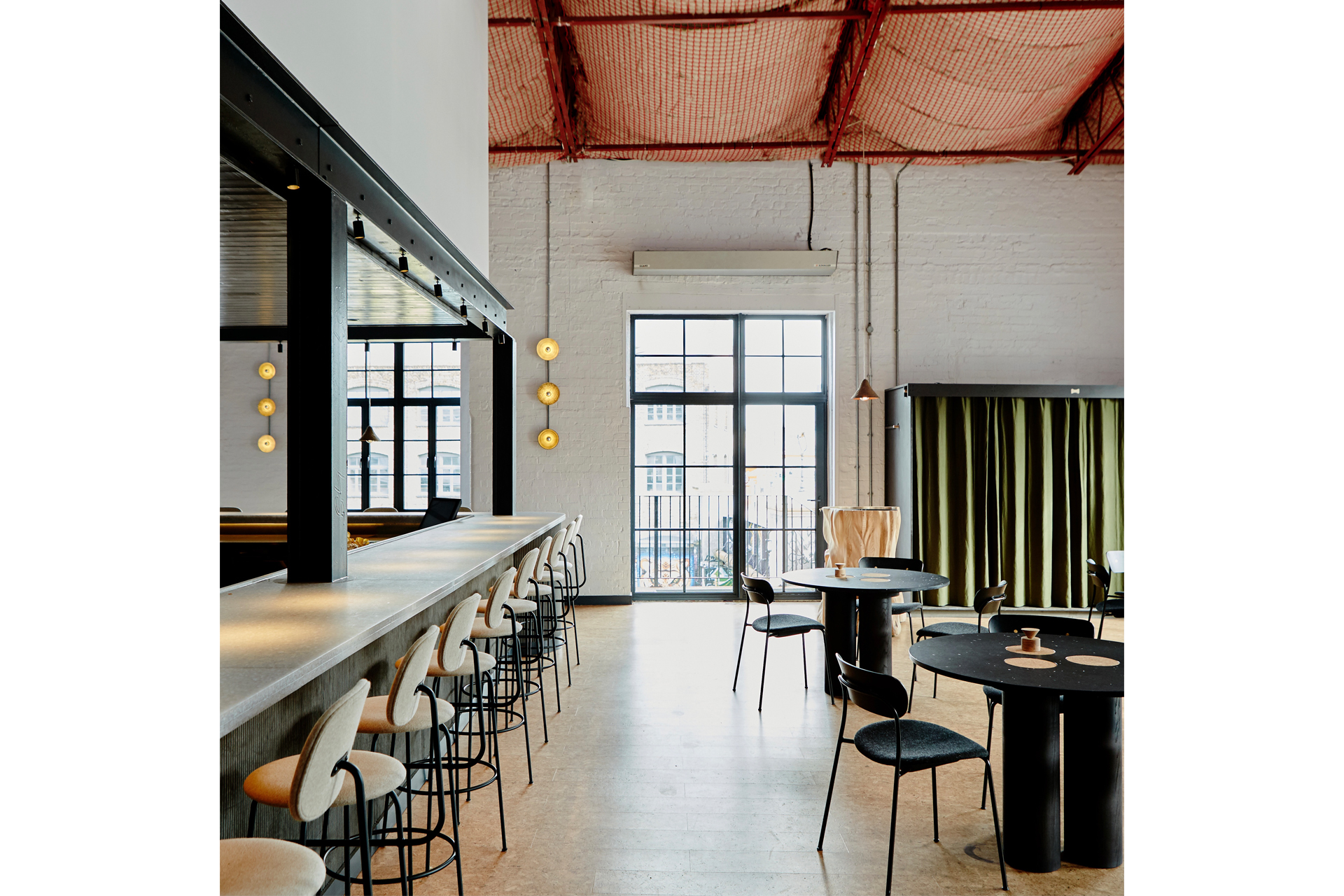
You can choose between neat black tables of varying sizes, or seats at the bar that overlooks the open kitchen, with its team of focused chefs slicing, sauteing and serving up the restaurant’s signature tasting menu.
Our meal started on a cheese-fuelled high: the ‘Silo Quaver’ was a mouth-watering, airy creation of koji (fermented grains), deep fried and smothered with treacle made from boiled and reduced vegetable peelings, and finished with grated, frozen Dorstone goat’s cheese. It’s deliciously crisp, sweet and cheesy: an umami hit that sets you up for what’s to come next.
Next came the aforementioned kalettes, a palette cleanser garnished with mutton garum sauce and yuzu koshu (fresh chilis fermented with yuzu juice), followed by flowers from the Alexanders plant – an invasive species brought in by Silo’s forager – which have a delicate, citrus flavour. Iron Cap pumpkin continued the vegetable highlights reel, seasoned with furikake and served with a fermented cream. More umami was then brought by maitake mushroom served with a rich miso broth. The savoury courses were rounded off with Stichelton, a raw milk traditional English blue cheese, an oozy plateful of punchy taste balanced with flavours of sweet Sunburst apple.
Finally, amazake (fermented rice) with raspberry cheong (a type of Korean preserve) was a refreshing palette cleanser, followed by an indulgent Siloaf ice cream sandwich, made using surplus cuts from the Silo bread and butter course, which is left to soak in water for two days until it begins to ferment into a Marmite-like substance, and added to sugars to produce a salty-sweet caramel. Buttermilk, a by-product of Silo’s home-churned butter, is caramelised into a Dulche de leche ice cream, before it is sandwiched between two wafers made from remnant bran, a by-product of the flour milled in the restaurant.
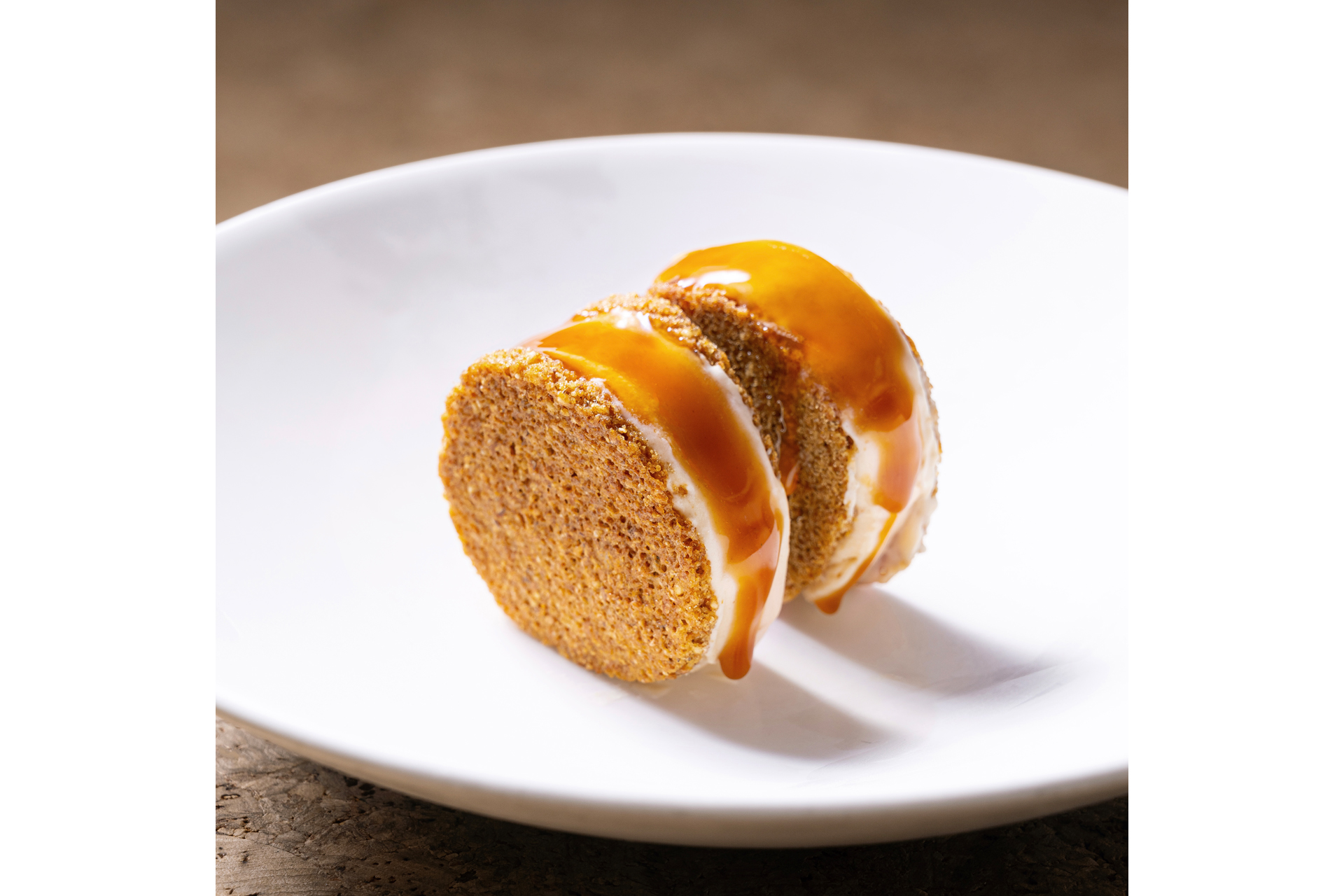
The Silo tasting menu is served alongside a selection of natural and organic wines from the cellar – opt for the pairing menu, or ask one of the friendly, accommodating staff to recommend a bottle. We drank Josmeyer Pinot Blanc Mise du Printemps, a delicious, low sulfur natural wine that was soft, floral and fruity, with a nice firm finish.
The Final Word
Silo London is set apart from other fine-dining restaurants not only because of its unique zero-waste ethos, but because of its resulting menu of dishes and ingredients not seen anywhere else. And although sustainability is woven into every element of Silo, it’s applied with a light touch, with the restaurant’s team of chefs and servers making it look totally effortless.
Fermentation is central to the Silo process, meaning flavours are deep and punchy, and occasionally challenging. However, although this is a restaurant for total foodies, its warm, welcoming staff and unpretentious service means it’ll be a real treat for all diners.


